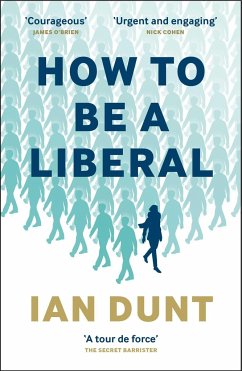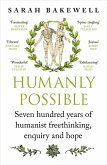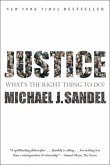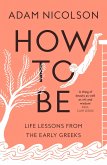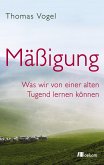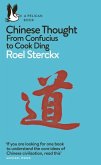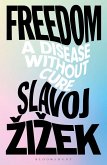'A tour de force.' - THE SECRET BARRISTER
'Urgent and engaging.' - NICK COHEN, OBSERVER COLUMNIST
'A phenomenal history from a truly big mind.' - DAVID SCHNEIDER, WRITER
'Required reading for anyone interested in politics and philosophy.' - PROSPECT
In a soaring narrative that stretches from the battlefields of the English Civil War to the 2008 Wall Street crash and Brexit, Ian Dunt tells the story of liberalism from its birth in the fight against absolute monarchy to the modern-day struggle against nationalism.
Narrated by the author, this vivid, epic book explains the political ideas which underpin the modern world.
Written by the presenter of the Origin Story podcast, it is a call to action for those who believe in freedom and reason, and a clear-throated defence and explanation of why those values matter to us all, in our everyday lives.
Mostly, though, it is political history and philosophy as it should be written (and read): taut, thought-provoking and bursting with ideas.
Among the topics dealt with are:
The birth of liberalism with Rene Descartes Radical ideas of freedom in the English Civil War Mob rule during French Revolution Liberal values in the American War of Independence Benjamin Constant's philosophical revolution John Stuart Mill, Harriet Taylor and liberalism's great love affair The Nazis and Soviets snuff out individual rights Building a liberal world with John Maynard Keynes The rise of identity politics and groupthink The viral threat from social media Liberalism's failures, from feminism to the rust belt From the US to Hungary, nationalism sweeps the world Why we fight for our values - the rebellion begins here
Hailed as 'courageous' by LBC's James O'Brien and as a 'tour de force' by the Secret Barrister, How to be a Liberal is both a history of the growth of individual liberty and a rally cry to turn back the new populism threatening democratic values and personal freedoms.
Reviews
'A tour de force; a mighty trumpet blast for the forces of liberalism and enlightenment in the face of a global tide of ignorance and populism.'
- THE SECRET BARRISTER
'This is a history of ideas as it should be written - brilliant, vivid story-telling about the people who shaped liberalism, the challenges it has faced over the centuries, its commitment to the truth and why it's now more important than ever to defend it.'
- CAROLINE LUCAS MP
'How To Be A Liberal is required reading for today's political debates.'
- ANNE APPLEBAUM, TWILIGHT OF DEMOCRACY
'I'm loving How to be a Liberal. It's really great. I mean breathtakingly good. Bravo.'
- DR BEN GOLDACRE
'Dunt... describes liberalism as "an enormous, boisterous, confounding bloody thing," and writes passionately in its favour, as a counterweight to ignorance and populism. This book is required reading for anyone interested in politics and philosophy.'
- PROSPECT
About the Author
Ian Dunt is a columnist with the I newspaper and presents the Origin Story and Oh God, What Now? podcasts.
His first book, Brexit: What the Hell Happens Now? (Canbury Press, 2017), on Britain's challenge in leaving the European Union, was a critically-acclaimed bestseller.
In How To Be A Liberal (Canbury, 2020), the journalist tells the epic story of personal freedom. Ranging across history, politics and economics, he makes a powerful case for a radical brand of egalitarian libe
'Urgent and engaging.' - NICK COHEN, OBSERVER COLUMNIST
'A phenomenal history from a truly big mind.' - DAVID SCHNEIDER, WRITER
'Required reading for anyone interested in politics and philosophy.' - PROSPECT
In a soaring narrative that stretches from the battlefields of the English Civil War to the 2008 Wall Street crash and Brexit, Ian Dunt tells the story of liberalism from its birth in the fight against absolute monarchy to the modern-day struggle against nationalism.
Narrated by the author, this vivid, epic book explains the political ideas which underpin the modern world.
Written by the presenter of the Origin Story podcast, it is a call to action for those who believe in freedom and reason, and a clear-throated defence and explanation of why those values matter to us all, in our everyday lives.
Mostly, though, it is political history and philosophy as it should be written (and read): taut, thought-provoking and bursting with ideas.
Among the topics dealt with are:
The birth of liberalism with Rene Descartes Radical ideas of freedom in the English Civil War Mob rule during French Revolution Liberal values in the American War of Independence Benjamin Constant's philosophical revolution John Stuart Mill, Harriet Taylor and liberalism's great love affair The Nazis and Soviets snuff out individual rights Building a liberal world with John Maynard Keynes The rise of identity politics and groupthink The viral threat from social media Liberalism's failures, from feminism to the rust belt From the US to Hungary, nationalism sweeps the world Why we fight for our values - the rebellion begins here
Hailed as 'courageous' by LBC's James O'Brien and as a 'tour de force' by the Secret Barrister, How to be a Liberal is both a history of the growth of individual liberty and a rally cry to turn back the new populism threatening democratic values and personal freedoms.
Reviews
'A tour de force; a mighty trumpet blast for the forces of liberalism and enlightenment in the face of a global tide of ignorance and populism.'
- THE SECRET BARRISTER
'This is a history of ideas as it should be written - brilliant, vivid story-telling about the people who shaped liberalism, the challenges it has faced over the centuries, its commitment to the truth and why it's now more important than ever to defend it.'
- CAROLINE LUCAS MP
'How To Be A Liberal is required reading for today's political debates.'
- ANNE APPLEBAUM, TWILIGHT OF DEMOCRACY
'I'm loving How to be a Liberal. It's really great. I mean breathtakingly good. Bravo.'
- DR BEN GOLDACRE
'Dunt... describes liberalism as "an enormous, boisterous, confounding bloody thing," and writes passionately in its favour, as a counterweight to ignorance and populism. This book is required reading for anyone interested in politics and philosophy.'
- PROSPECT
About the Author
Ian Dunt is a columnist with the I newspaper and presents the Origin Story and Oh God, What Now? podcasts.
His first book, Brexit: What the Hell Happens Now? (Canbury Press, 2017), on Britain's challenge in leaving the European Union, was a critically-acclaimed bestseller.
In How To Be A Liberal (Canbury, 2020), the journalist tells the epic story of personal freedom. Ranging across history, politics and economics, he makes a powerful case for a radical brand of egalitarian libe
'A tour de force; a mighty trumpet blast for the forces of liberalism and enlightenment in the face of a global tide of ignorance and populism.'
- THE SECRET BARRISTER
- THE SECRET BARRISTER
How to be a Liberal is a non-exhaustive (by Dunt's own admission) but thorough exploration of liberalism's journey from early thinkers such as Rene Descartes and Benjamin Constant all the way through to 21st century liberalism and the urgent crisis it now faces in its battle with nationalism and populism. The beauty of this book not only stems from the intrinsic beauty of the ideals of liberalism, but from Dunt's presentation of the logical progression of the history of ideas in a way that makes this book accessible to anyone who wishes to apply liberal principles to the rather mad world in which we currently live... As one moves through the book, Dunt's political philosophy becomes increasingly clear. His ability to write on issues of the day was clear before this book, but when this is combined with the intellectual force of the previous chapters, the final chapters become a devastating polemic of the current success of nationalism across Europe and America. Targets of this polemic include Viktor Orban, Boris Johnson and the pushers of identity politics. His criticism of both nationalists and those who play the game of identity politics is fundamentally the same – they reject the importance of the individual and instead rely on homogenous and rigid assumptions about the nature of particular groups (in spite of the good intentions of those on the left). These assumptions fail to consider the complexity of human relationships and thus, according to Dunt, ultimately fail. There is also pointed, and perhaps surprising given Dunt's political history, criticism of the EU. One gets the sense that this criticism stems from Dunt's disappointment at the EU in failing to stand up to nationalism (Libyan refugee crisis and Hungary) and the institutionally liberal principles upon which it was created (Eurozone Crisis). This book is an urgent restatement of principles that have been missing from political discourse in the UK, Europe and the USA over the last few decades. At the heart of these principles is the importance of individual liberty and how all rights flow from this. Although the picture may not currently be overly bright, Dunt strikes a fundamentally optimistic tone about the strength of institutional politics (particularly in the UK) and the ability to push back against the dark wave of nationalism currently flooding through Europe. Essential reading.

